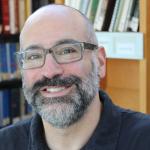By Gregory
I’m interested in engaging others concerning their views on Original Sin, the human condition, and meanings of salvation.
Few disagree that we live in an imperfect, flawed, dynamic, beautiful world. Also, few disagree that human beings are amazing, conscious creatures possessing tremendous value and dignity, demonstrating incredible abilities, including the potential for genuine goodness and serious evil. Within each human heart runs the potential for sacrificial love, kindness, war, cruelty, and selfishness.
Most people recognize that we humans tend to lose our sense of place in the world, our inherent connectedness – thus creating cascading imbalances and disorientation. Instead of affirming our connection to nature and to others, we too often experience fragmentation, alienation, and separation. We end up living in disequilibrium, harming ourselves, others, and the environment.
No matter how holy we become, no matter how sincere our prayers, effective our rituals, or pure our love – we will all experience periods of suffering, pain, loss, grief, illness – our lives will never be perfect, we and our loved ones will age and die. Yes, our lives will also be punctuated with moments of intense joy, peace, love, and beauty – but none of us lives a perfect life.
The above are simple descriptions of our given reality leading to fundamental and interesting questions theologically – how do we explain our situation and how do we square our understanding of the human condition with our views on God?
The world’s great religious traditions have offered a range of myths to explain the human condition and the imperfection of our world – there are narratives of Original Sin and redemption, impermanence and loving acceptance, and the myths of Kabbalah with the emphasis on a flawed creation and God’s action of Tzimtzum – to mention just three sets.
None of these myths are fully demonstrable. I can’t prove the Christian vision of original sin to be true or false – I can only look at the world and my experience and make my own judgment as to whether it’s a fitting or less than adequate explanation of reality. This is an extremely important point that I cannot emphasis enough – theology is an important enterprise, but one of personal judgment, speculation, and extrapolation – it’s not math or physical science, its operations do not yield falsifiable hypothesis.
Orthodox Christianity has favored versions of teachings on Original Sin – the notion that our original parents, or that the first group of humans, rejected and therefore damaged our relationship with God and therefore damaged our world and ourselves. Part of this vision is the positing of a state of Original Blessing, the claim that at the start of creation humans existed in some sort of idyllic state, free from sin and its effects.
The Christian narrative of Original Sin is balanced with the narrative of Jesus’ acts of redemption on the Cross and the start/promise of the renewal of Creation in the Resurrection. Human life won’t ever be perfect in this world, but if we align ourselves with Jesus, God’s grace can help us overcome life’s difficulties.
Jewish notions on the origins of the human condition vary – orthodox Jews tend to favor soft versions of the Original Sin narrative, Jews into Kabbalah engage the myth of God’s creative action (Tzimtzum) going tragically wrong, resulting in a damaged world, and most Liberal Jews employ an understanding close to Buddhism’s – our world is imperfect and in constant flux, and it’s our responsibility to accept what we cannot change and strive to alleviate what suffering we can and work toward transforming the world into a better place.
In this short blog post, I don’t have time or the space to do justice to the richness and nuance of each of the above teachings – for example, there are many ways of approaching the Christian notion of Original Sin – from versions that stress total human depravity, to understandings that emphasize the human tendency to turn away from God, thus insisting on walking a path other than one of kindness, giving, and love.
How we understand God plays a pivotal role in the above narratives. If you understand God as a Perfect Person, then obviously, you can’t lay the blame for the world’s problems at his feet; it must be our fault (thus the emphasis on human rebellion in some of these stories). If your understanding of God is more abstract and less personal – God as the ground of being, vital force in the universe, source of order and life, and so on – you have more room for interpretations that simply posit an imperfect world all along and no radical or enduring separation between God and humanity.
What do I think? I want to again emphasize that the following is my opinion – I can’t prove the truthfulness of my view any more than can those who believe otherwise – belief is just that, our interpretation of the world after we personally weigh the evidence and reach our own conclusion. We can argue for our insights, but we cannot, strictly speaking, prove them.
1) I don’t accept literal interpretations of the Genesis Creation Narratives. Given what we understand about evolution and human origins, Adam and Eve are mythic figures, not real people. I read the story in line with many Liberal Jewish interpretations – it is not a story of a Fall or rejection of God – it is a story of awakening and maturity of the human family – perhaps indicating our becoming fully morally aware, and thus our emergence as persons capable of partnership with God.
2) I therefore see no cosmic debt owed by humanity to God – no abyss of separation, no eternal debt to repay, no radical separation. The scriptures tend to favor this reading – one of God’s first acts after the pronouncement scene in Genesis is an act of kindness – he makes cloth clothing for Adam and Eve. He continues his relationship with their Children, and goes on to call and Covenant with Noah, Abraham, Moses, and the entirety of the Jewish people. The Hebrew Scriptures in their entirety depict a very active, very personal, very intimate relationship between God and the human family – not some dismal rupture preventing loving union between God and humanity.
3) Therefore, I don’t view salvation in the same way as do many of my orthodox Christian friends – I don’t accept any version of the Four Spiritual Laws. My question when asked if Jesus is my savior, is “What do I need saving from?” If it’s God’s just wrath at my rebellious, sinful condition – I strongly and fiercely deny such. For me, salvation is an ongoing process of alignment with Divine realities and powers – an orientation – the walking a path that leads affirms human dignity, human life, and compels us to a life of love, service, and kindness. Salvation is the result of a partnership between God and the human person, and it admits of communal and individual dimensions.
Harkening back to an earlier post on Why I am Not a Christian – I see much beauty and meaning in Jesus’ teaching. I see a consistent challenging an oppressive regime and corrupt order. I see the integrity of someone committed to their principles and vision of a better world. I see an example of kenotic love poured out in steadfast witness. I see someone who died for his convictions.
But I don’t see a payment of sins. I don’t see punishment inflicted by a God of retribution. I don’t see someone dying as a substitute for others who deserve death. And I certainly don’t see how Jesus’ execution makes everything in the world right in some cosmic sense of everlasting atonement.
However, I do understand that people I love and respect do see the world this way. And I am remain open to hearing from them as they express how they make sense of the human condition and the things that lead to a life of meaning and value. I’m most interested in hearing from others on their views on these topics – send me a comment or an email.











